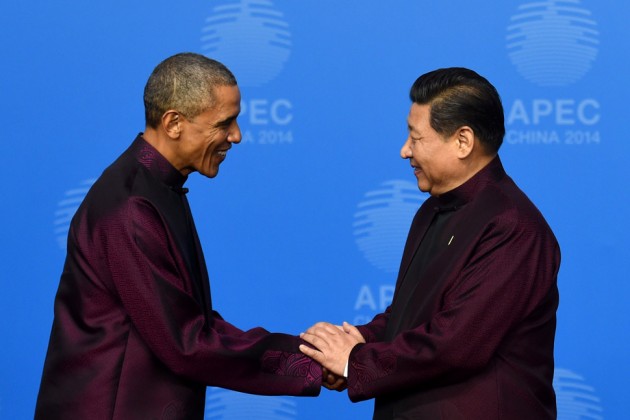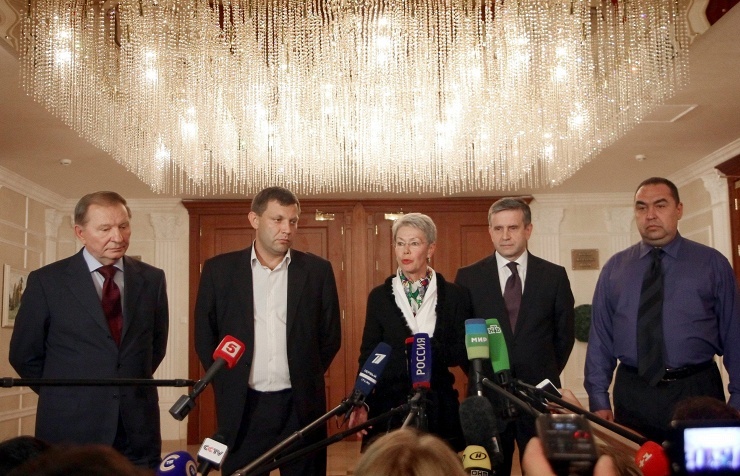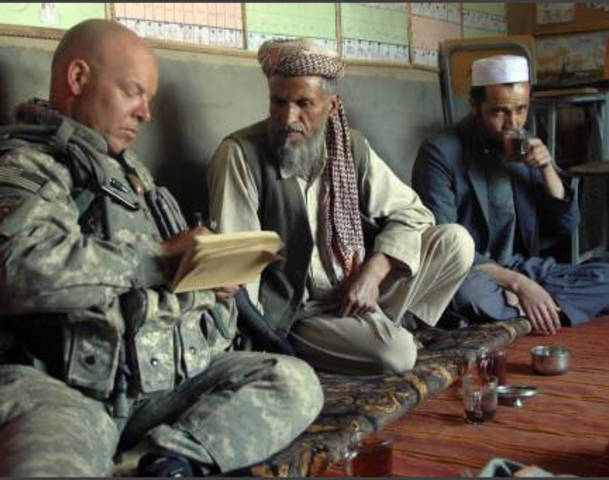World news is abuzz with the announcement of the new U.S., China agreement to reduce Greenhouse Gas (GHG) emissions. In this groundbreaking agreement two of the world’s worst polluting nations have committed to take actions to reduce GHG emissions, with the hope of spurring other nations to follow suit. Obama has set the goal of reducing U.S. emissions by 26 to 28 percent by 2025 compared with 2005 levels. China has committed to have its emissions peak by 2030 and subsequently fall in the years after. Although this allows China to continue to produce rising amounts of carbon dioxide for another 16 years it is a huge step for a country that has been reluctant to commit to any global climate standards in the past. In Obama’s words, “This is a major milestone in the U.S.-China relationship.”
What has been less widely discussed is the new military, trade and visa agreements that arose from the same two days of talks between Presidents Obama and Xi Jinping. Two new military agreements were reached in order to deter military confrontations between the two nations in Asia. The first agreement calls for a mechanism that will notify the US and China on each other’s major military activities such as training exercises. The second sets out expectations of behaviour during any encounters between the two nations at sea and in the air. It was Mr. Xi’s turn to state “Our relations are now standing at a new historical point”.

Beijing was initially skeptical to accept an encounters agreement, not wanting to be compared with U.S. – Soviet Union relations of old or be limited in acting in what China sees as its territorial waters. It, however, realizes that a focus cannot be put on the reconciliation of differing interpretations of international maritime law (i.e. settling territorial claims disputes in the East China Sea with Japan) if the distraction of unplanned military encounters also exists.
These recent agreements represent an unusual but positive step forward for Sino-U.S relations. Beijing’s attempts to solidify China as the major power in Asia and its threatening methods for addressing territorial disputes with Japan and the Philippines, both U.S. allies, have left relations rocky of late. The U.S. commitment to assist in the settlement of China’s maritime claims in the South and East China Sea has highlighted the importance of rectifying relations with China in order to move forward. Since their initial meeting at Sunnylands estate in California 16 months before this recent round of talks, both world leaders have appeared eager to improve their nations’ relationship and with these two new military agreements they have paved the way for a hopeful future.

As Obama enters his last two years in office, his legacy in Asia has been to consolidate U.S. influence. With these new agreements, the U.S. has placed itself right in the middle of some major Asian maneuvering. As Japan moves forward with its new Mid Term Defense Plan (MTDP) strengthening its position in Asia and reaffirming U.S. alliances, China is now reconciling its differences with the U.S. and partnering with them on key issues such as climate change. The cause for Japan’s recent posturing has been largely speculated to have been triggered by deteriorating Sino-Japan relations. However moving forward from the recent talks between D.C. and Beijing, President Xi has agreed to meet with Prime Minister Shinzo Abe of Japan to discuss tensions. With Asian power relations at a pivotal point, many key military decisions will surely follow




